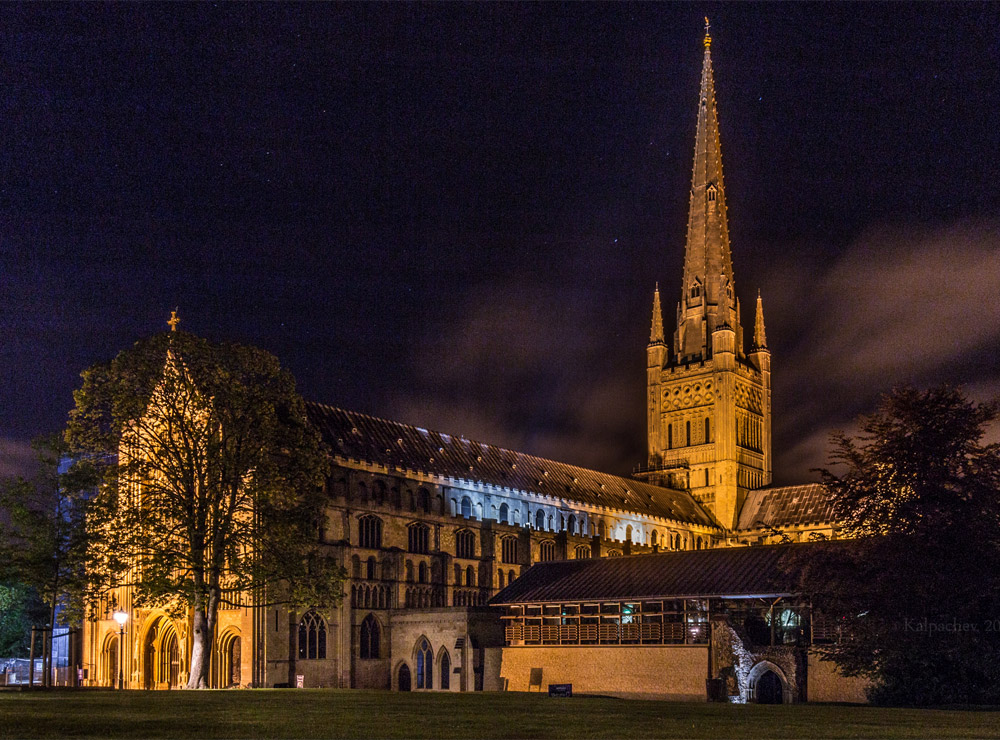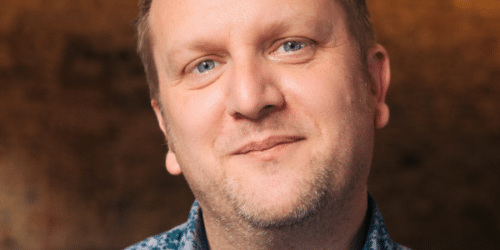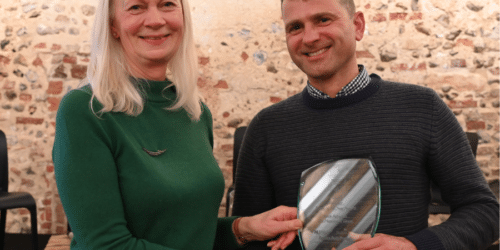
This summer, Korean writer Paik Gahuim came to Norwich for a two-month writing residency at WCN, with generous support from Arts Council Korea. Paik Gahuim made his literary debut in 2001 when he won the Seoul Shinmun New Writer’s Award. He is the author of the short story collections, The Cricket Is Crying, Manager Jo’s Trunk, and The Hint is “Brother-in-law,” as well as the novel, Naphthalene.
Very often, Norwich’s quiet streets will be seen from my 25th-floor balcony.
When we travel, the aftereffects dance at the edges of our lives for a long time. The body has returned, yet something still has been left behind. In other words, a part of our present life is still living in the place we have left. But, because of that, in order to obtain that aftereffect, we endlessly go somewhere and come back. What is clear is that the memory or part of our life that was left somewhere, and that has become utterly insignificant, is governing wholesale we who are living in the here and now.
Time continues to go forward, but through the thing which humans call memory, time is made to flow ceaselessly to the past. The aftereffect of travel is such a thing. Time flows backward, to the past. From today to yesterday, from yesterday to ten days ago, and to several years ago, the scenery we had passed without noticing, the peace given by nature turns time ceaselessly back on itself. The charm of what we see in the course of travels is there. There, in leaping over several years, several days at one bound, and flowing to the past. Only then do we sense how much we have left behind, and hurry.
The aftereffects of travel are sensed here and there in life. A single sight that comes upon us unexpectedly makes the present time stop. Travel has deep credit. The present here is uninteresting. Should I go back again, we mutter? If that memory or time is sincere, it seems the self who had already been lost in the every day is discovered. A single breath comes out. If we think it about it closely, was our life in the place we travelled to that special, was the scenery of a foreign country so spectacular as to make us forget the sights where we are now, when this occurs to us it seems not at all the case. Norwich, the city in the UK where I recently went, is such a place.
through the thing which humans call memory, time is made to flow ceaselessly to the past
With the support of Writers’ Centre Norwich and ARKO, I was able to spend a special summer in Norwich. There, I tasted a summer that didn’t seem like summer at any point. It frequently rained, and was chilly even on days of bright sunshine. It was an odd feeling. It was summer, so I wore short sleeved shirts, but was cold. In actual fact, I felt cold even when the temperature wasn’t that low, and had to recall every time, England is a cold place. It was very different from the weather in the place where I’m living now; since I adapted, I should go back. This past summer disappeared like that.
It was quite dull and there wasn’t much to do, so it was the most wonderful holiday. In the mornings I went to study English. I was really awkward. Sitting with the other students and learning English made me shy, but it became enjoyable after a while. Once a little time had passed it felt like I had gone 30 years back in time and was sitting in the middle school classroom in my hometown. When the lesson finished I went back to my flat, had lunch and went to the central library. In this small city whose population was no more than 130,000, the library was the most grand, splendid building. In the afternoons sitting in the library was really great. All through the afternoon I sat there and wrote something, sometimes read a book, and did some people-watching. I had a leisurely coffee in a cafe and read a book. Sometimes I even sat gazing at an event or performance happening in the square in front of the library. Even though I couldn’t understand what they were saying very well, there was nothing that seemed especially incomprehensible. People get on with their lives in much a similar way in England or Korea.
When I left the library at the end of the afternoon, it was still daylight. During the English summer, it gets dark only gone 9pm. I would have an early dinner, and ride my bike to the outskirts of the city. It was excitedly different. I had no way of knowing where I was. When it struck me that I’d come too far, I turned back. On the way home, every time I ended up finding myself on a route that wasn’t the one I’d expected. I would find my way back eventually, after wandering around for a while. Getting lost was scary the first time, but once it became familiar I actually started to anticipate seeing unfamiliar scenery. At night I watched TV, wanting to study. Again, though I couldn’t tell exactly what they were saying, it wasn’t that I didn’t understand, either.
And there were times when my mood was damaged very much. It removed the stain of facing one inflexible and political part of Korea that I had forgotten, and my heart and mind became peaceful. Early mornings, the church bell would wake me quietly.
‘literature’ means rummaging around to find what is turbulent in a simple and quiet place
Senior writers having warned me not to expect friendliness from English people made me all too ashamed. Everyone I met in Norwich was friendly and extremely considerate. People would ask, was the England I’d come to a different place? Especially those who worked at WCN gave so much help and love to a diminutive foreigner from East Asia. Thanks to that, I was able to live a very simple life. I was able to feel afresh that ‘literature’ means rummaging around to find what is turbulent in a simple and quiet place.
Norwich is a beautiful, quiet place. I diligently pedaled my bicycle all through the summer. Mixed in with the night wind, thoughts and ideas went flying. There is one person I cannot forget. I had to bring the bicycle I’d ridden in Norwich back with me to Korea, but the process wasn’t easy. Ultimately there was a problem at Norwich airport. The baggage confirmation for the bicycle didn’t come where I changed planes at Amsterdam. A KLM airline employee named Jui solved everything for me. She came right to the departure gate with me and solved the problem. I got on the plane just in time. My final memory of Norwich is that many people made me indebted to them like this. Jui is the name of a Vietnamese woman in a novel I wrote a long time ago; it was a strange feeling, encountering her real-life namesake. Because it seemed I had met her again in Norwich airport years later, she who had been the protagonist of a tragic life. On the plane, I couldn’t help but mull over why she had shown me such kindness. Because, unlike me who had already given up on my luggage, she busied herself making sure that I could get the bike back to Korea somehow or other. The time and scenery of Norwich this previous summer is overlaid with her face. Scenes which are quiet, not flashy but relaxed and carefree, are settling down deep inside me. I press down firmly on the bicycle pedal, and at some point I arrived back at my apartment in Korea. That was how the summer passed.
It really is a strange thing. I’ve no time to think clearly, having returned from that holiday to my busy life; I am still bored as ever. Now and then I see Norwich’s amply empty streets, where nothing happens, nothing special is going on, from my 25th-floor balcony. The cathedral bell is faint. and distant.
You may also like...
Writing ‘Ghostland: In Search of a Haunted Country’
In this article, writer and NCW Academy tutor Edward Parnell shares his experience writing his mixed-genre book ‘Ghostland: In Search of a Haunted Country’.

29th February 2024
‘The Meaning of Geese’ wins East Anglian Book of the Year 2023
The debut book from Norfolk conservationist Nick Acheson is crowned the overall winner of the East Anglian Book Awards

16th February 2024






